No products in the cart.
Return To ShopZinc Deficiencies: Causes, Symptoms, and Effective Solutions
Zinc is a vital trace mineral that your body needs in small amounts but its impact on health is massive. It plays a key role in hundreds of enzymatic reactions and supports immune function, wound healing, DNA synthesis, cell division, and even taste perception. Because the human body doesn’t store zinc, it must be consumed regularly through diet or supplements to maintain optimal levels.
Understanding Zinc Deficiency: A Growing Nutritional Concern
Zinc deficiency is a surprisingly common global issue, especially in developing countries, but even modern diets can fall short. According to recent nutritional surveys, up to 20% of the global population may not be getting enough zinc. Inadequate intake, poor absorption, and lifestyle factors are all culprits. Left unaddressed, this silent deficiency can lead to serious health consequences over time.

Common Causes of Zinc Deficiency
Several factors can contribute to low zinc levels, including:
- Poor Dietary Intake: Diets low in animal protein or high in processed foods often lack zinc-rich sources.
- Digestive Disorders: Conditions like Crohn’s disease, ulcerative colitis, and celiac disease impair absorption.
- Pregnancy and Lactation: These increase the body’s zinc requirements.
- High-Phytate Diets: Whole grains and legumes are healthy but contain phytates that bind to zinc and inhibit its absorption.
- Excessive Alcohol Consumption: Alcohol reduces zinc absorption and increases excretion.
- Strict Vegetarian/Vegan Diets: Plant-based zinc is less bioavailable than animal sources.
Warning Signs and Symptoms of Zinc Deficiency
Zinc deficiency can manifest in subtle but impactful ways. Here are the most common signs:
- Weakened immunity and frequent colds or infections
- Hair thinning or hair loss
- Delayed wound healing
- Skin problems like acne or eczema
- Loss of appetite or altered taste and smell
- Chronic diarrhea
- Cognitive issues like poor concentration or mood swings
- In children: stunted growth and delayed development
Who Is Most at Risk of Zinc Deficiency?

Certain groups are more vulnerable to zinc deficiency, including:
- Vegetarians and Vegans: Due to low intake and poor absorption of plant-based zinc
- Pregnant and Lactating Women: Higher nutritional demands increase the risk
- Children and Adolescents: Rapid growth phases require more zinc
- Elderly Individuals: Decreased intake and absorption with age
- People with Chronic Illnesses or Digestive Disorders: These conditions impair zinc metabolism
How Is Zinc Deficiency Diagnosed?
Zinc levels are notoriously difficult to assess through standard blood tests, as most of the body’s zinc is stored in cells. Diagnosis often relies on:
- Clinical evaluation of symptoms
- Dietary assessments
- Response to zinc supplementation (therapeutic trial)
Healthcare providers may also test plasma or serum zinc, but these results can be influenced by stress, infections, and even time of day.
Health Risks and Long-Term Complications
If left untreated, zinc deficiency can lead to:
- Compromised Immune Health: Increased vulnerability to infections
- Poor Wound Healing: Slow recovery from injuries or surgeries
- Hair and Skin Issues: Dermatitis, rashes, and persistent skin problems
- Cognitive and Emotional Disorders: Brain fog, irritability, and depression
- Growth Delays in Children: Physical and intellectual development issues
- Reduced Fertility in Men: Zinc supports testosterone production and sperm quality
Natural Food Sources Rich in Zinc

Incorporating zinc-rich foods into your daily diet is the most effective way to maintain healthy levels:
- Animal Sources: Oysters (highest), beef, lamb, chicken, eggs
- Plant Sources: Pumpkin seeds, cashews, lentils, chickpeas, quinoa
- Fortified Foods: Some cereals and dairy products
- Absorption Tips: Soaking and sprouting legumes/grains can improve zinc bioavailability
Best Zinc Supplements to Combat Deficiency
When dietary intake isn’t enough, supplementation is a safe and effective strategy. Popular and bioavailable forms include:
- Zinc Picolinate: Highly absorbable and gentle on the stomach
- Zinc Gluconate: Commonly used in cold lozenges
- Zinc Citrate: Easily digested and suitable for sensitive stomachs
- Zinc Bisglycinate: Ideal for those with GI sensitivities
Recommended Dosage:
- Adults: 8–11 mg/day (RDA)
- Upper Limit: 40 mg/day (unless medically supervised)
Always choose supplements that are third-party tested, free from fillers, and manufactured by reputable brands.
When and How to Take Zinc Supplements for Best Absorption
To maximize zinc absorption:
- Take on an empty stomach if tolerated
- Avoid taking zinc with calcium or iron, which may interfere with absorption
- Pair with vitamin C to support immune synergy
- For long-term use, consider a balanced zinc-to-copper ratio (typically 10:1)
Can You Have Too Much Zinc? (Toxicity Risks)
Yes, excessive zinc intake can cause adverse effects. Over-supplementation may result in:
- Nausea or vomiting
- Headaches
- Copper deficiency (leading to anemia or neurological issues)
- Suppressed immune function over time
To stay safe, don’t exceed the UL of 40 mg/day from supplements unless advised by a healthcare provider.
Expert Tips to Prevent Zinc Deficiency Naturally
- Eat a diverse diet with both plant and animal zinc sources
- Be mindful of phytate-heavy meals (soak/sprout grains, pair with vitamin C)
- Consider periodic zinc testing if you belong to a high-risk group
- Supplement only when needed and under professional guidance
- Monitor for long-term use effects like copper imbalance
Final Thoughts: Prioritizing Zinc for Optimal Wellbeing
Zinc may be a trace mineral, but its role in health is profound. From boosting immunity to improving skin and mental clarity, maintaining adequate zinc levels is a simple yet powerful way to support overall wellness. Whether through food or supplements, addressing zinc deficiencies can lead to better energy, stronger immunity, and improved quality of life.
Explore original zinc supplements and trusted health solutions at Sports One International and take a confident step toward better immunity and long-term wellness.
FAQs
What are zinc deficiencies?
Zinc deficiencies occur when the body does not get enough zinc to support immune function, growth, wound healing, and enzyme activity, leading to various health issues.
What causes zinc deficiencies?
Zinc deficiencies may result from poor diet, digestive disorders, vegetarian diets, chronic illnesses, or increased zinc needs during pregnancy, growth phases, or intense physical activity.
What are common symptoms of zinc deficiencies?
Symptoms include frequent infections, slow wound healing, hair loss, skin problems, reduced appetite, weakened immunity, and impaired taste or smell sensations.
How are zinc deficiencies treated?
Zinc deficiencies are treated through dietary improvements, zinc-rich foods, and supplementation when needed, following recommended dosages to avoid excessive zinc intake.
Who is at risk of zinc deficiencies?
Children, pregnant women, elderly individuals, vegetarians, athletes, and people with absorption disorders are at higher risk of developing zinc deficiencies.

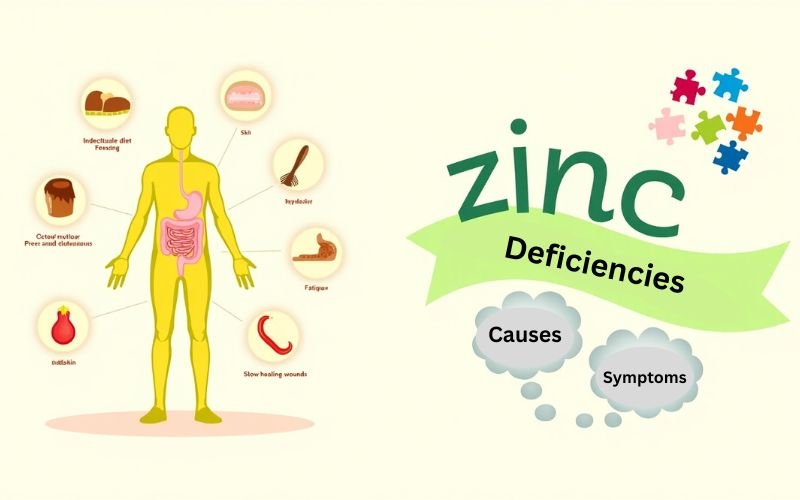
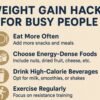

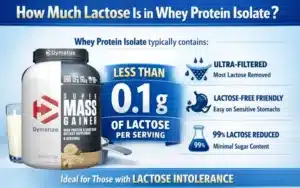

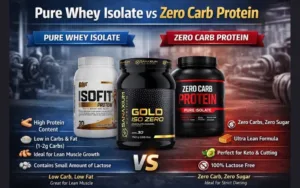
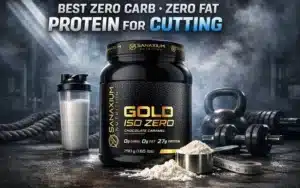

Add comment